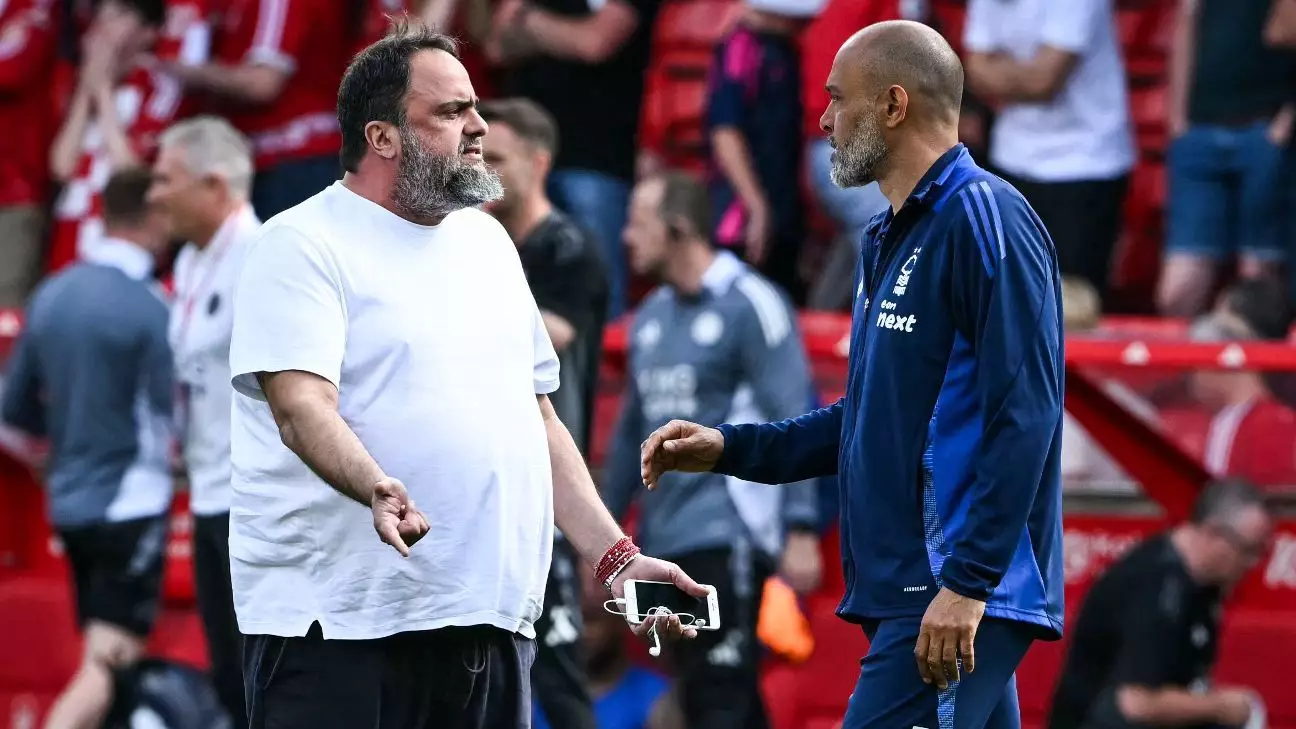In the world of football, emotions run high, and sometimes they reach a boiling point. This was precisely the case for Nottingham Forest owner Evangelos Marinakis during the recent match against Leicester City, where a critical moment led to a surge of frustration that he could not contain. It was reported that Marinakis rushed onto the pitch out of sheer concern for his player, Taiwo Awoniyi, who appeared to be in severe distress after colliding with the post. Instead of a calculated businessman’s decision, Marinakis exhibited a visceral reaction to a moment that transcended mere sportsmanship—his act became an embodiment of empathy in leadership.
The Weight of Responsibility
Marinakis’s actions were rooted in a profound sense of responsibility toward his players, indicating that his role extends beyond the boardroom. The club’s statement elaborated on this by highlighting Marinakis’s deep emotional investment in his players’ wellbeing. His instinctive response aligns with a natural and humane reaction to witnessing a team member in pain, suggesting that success hinges not just on tactics and strategies, but on strong emotional ties within the club. In an era where the business aspect often overshadows the human element in sports, Marinakis stands as a reminder of why understanding and empathy should not be undervalued in the world of competitive athletics.
Misinterpretations & Leadership Communications
However, Marinakis’s passionate display raises significant questions about leadership communication, especially in high-stakes environments. While the club was quick to clarify that there was no confrontation with manager Nuno Espirito Santo, the initial appearance of discord could potentially signal deeper underlying issues. In instances where emotions overflow, clear communication is imperative to prevent misunderstanding. Although Marinakis’s intentions were pure and centered on his concern for Awoniyi, the optics of his actions could have portrayed a divided front within management. This incident serves as a lesson that both players and executives must maintain a united voice—even in moments of genuine concern.
Impact on Team Dynamics
The aftermath of the incident is also revealing of team dynamics within Nottingham Forest. Questions arise about how such emotional displays affect morale, bonding, and support systems within the squad. Awoniyi’s surgery, which the club announced shortly after the match, adds a layer of gravity to the situation, emphasizing that the wellbeing of players remains paramount. Marinakis’s urgent concern could enhance the sense of solidarity among players, potentially uniting them under the notion that their owner genuinely cares for their health and performance. Still, it is imperative that this emotional experience not become a focal point for distraction but rather a catalyst for cohesion and motivation.
The juxtaposition of a passionate owner, a distressed player, and a complex managerial relationship illustrates how sensitive the intersection of emotion and strategy can be in sports. In recognizing the profound impact of Marinakis’s actions, stakeholders in the game—owners, players, and coaches alike—should reflect on the balance between empathy and professionalism, striving for a culture where both can coexist harmoniously while driving towards success.

Leave a Reply